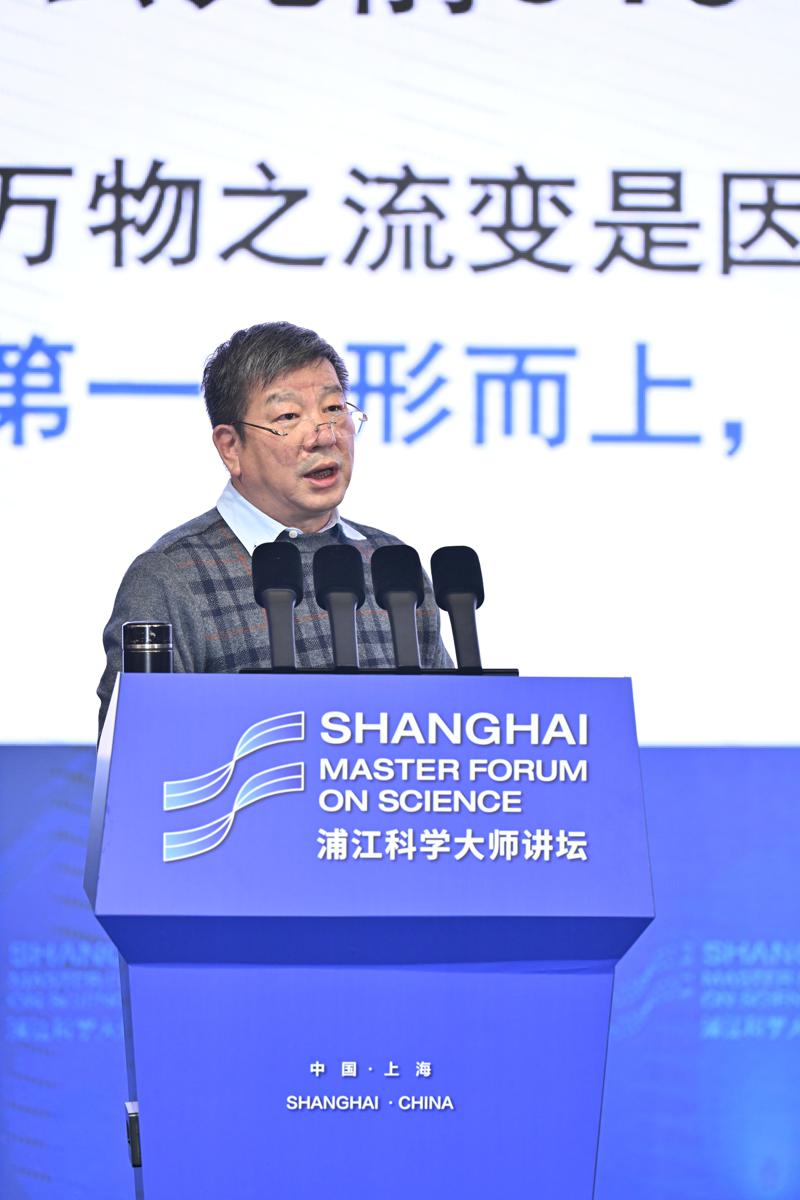
The 5th Shanghai Master Forum on Science featured a lecture presented by Zhao Dongyuan, a leading scientist in the research and development of functional mesoporous materials, at the Xianghui Hall of Fudan University in Shanghai on Dec 28.
Zhao, who is currently the dean of the School of Chemistry and Materials at Fudan University, prepared 148 pages of slides for the 90-minute presentation, titled "Seeing through 'holes': The World—Endless Scientific Frontiers". The lecture covered both the development of chemical science, innovative scientific thinking, and future subject development.
At the beginning of the lecture, Zhao introduced ancient Greek natural philosophy and shared how humans view matter from the perspective of a chemist and how to study material science from the molecular and atomic levels.
Looking back on the long history of chemical science, Zhao spoke about key figures such as Robert Boyle, the "father of chemistry" who opened the way to modern chemistry, John Dalton who founded atomic theory, Robert Burns Woodward, the "genius of organic synthesis", and shared his thoughts on the scientific spirit.
"Chemists must be full of imagination and have the ability to be explorers," said Zhao as he addressed the audience consisting of students from the university and nearby high schools, government officials and fellow researchers. "At the same time, chemistry is also an art of synthesis and an artistic science that needs to be inherited and innovated."
Zhao then stressed on the scientific spirit of "love".
"Curiosity is human instinct, and everyone has it. But to really make a difference in science, I think the most important thing is love. This love is not a simple interest, but a kind of rationality that comes from the heart. This drive is so strong that you are willing to give everything for it," he said.
Zhao has been dedicated to the research of functional mesoporous materials for more than 20 years and had won international recognition for his achievements. He has been honored with numerous domestic and international prestigious awards, including the First Prize of National Natural Science Award of China in 2020 and the Khwarizmi International Award in 2019.
In November, Zhao became the first dean of the newly established Xianghui Research Institute of Fudan University. The institute focuses on tackling forward-looking, challenging, and high-value key scientific problems, and strives to create a tolerant, open, active, and free academic environment for talents to grow and prosper.
Zhao said he is looking forward to working with more scientists and focusing on "making science an important cultural gene for China in the future".
Initiated by the Chinese People's Political Consultative Conference Shanghai Committee and hosted by the city's science and technology administrators and Fudan University, the Shanghai Master Forum on Science is expected to play a key role in Shanghai's quest to become a scientific and technological innovation hub.
The forum's previous editions featured keynote speeches by Michael Levitt, laureate of the 2013 Nobel Prize in Chemistry, Yau Shing-tung, the first Chinese winner of the Fields Medal, Leroy E. Hood, winner of the Lasker Award and co-initiator of the Human Phenotype Project, and Serge Arroche, emeritus professor at the Collège de France and winner of the 2012 Nobel Prize in Physics.





 loading......
loading......